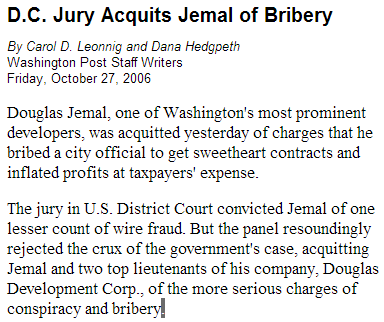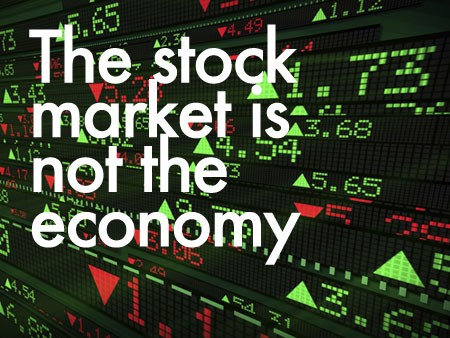Editor’s note: This will be Phillip Blanchard’s final regular post for BusinessJournalism.org. A copy editor on the Washington Post Financial desk for 6 1/2 years and founder of an online forum called Testy Copy Editors, Blanchard has written here about best practices for the business press since January 2011. An archive of his posts will always be here: Testy Business Copy Editor.
And he will continue to write regularly at Testy Copy Editors. We wish him well.
Author’s note: This is the second and last part of my valedictory. The first part appeared on Dec. 4.
Sensationalism:
The business press is more restrained than general news and sports, but still has a tendency to blow things out of proportion. The stock market is not the economy but we persist in giving the impression that it is. Savvy investors — by which I mean professionals, since few individual investors are particularly savvy — know this and often bid shares up and down based not on economics, but rather on how they think other traders will buy and sell. It’s gambling, pure and simple. That’s not news, but the business press usually acts as though it’s something else. This sort of reporting is unhelpful and should be curtailed. Business reporters and editors need to stop thinking of themselves as part of the grand market, and instead embrace true outsider status. Copy editors can contribute by stopping themselves every time they are inclined to include the word “record” in a headline. Any claim of a “record” should be scrutinized and, if need be, challenged.

Favoritism:
We play favorites, with business people, companies and, especially, economic systems. Steve Jobs, of course, was the favorite among favorites, and in many ways still is. But we also lionize people like Henry Blodget, despite legal problems. Blodget’s Business Insider was his way back into the limelight after he was kicked out of the securities business for fraud. Incredibly, he is taken seriously. Same with Michael Milken, who went to prison and also was barred from the securities market for fraud. He now bills himself as “philanthropist, financier, medical research innovator, public health advocate.” The press loves him, perhaps because it’s thought that he’s turned over a new leaf. It’s amusing that Blodget’s Business Insider is a leader in the we-love-Milken club.
There are local favorites, too. Developer Douglas Jemal, who was a special favorite of the Washington Post when I worked there. The Washington Business Journal liked him, too. The idolatry seemingly came to a crashing end when Jeman was indicted in 2005. But, no. He was convicted of fraud the following year, but the Post, noting that he was acquitted of other charges, cast his trial’s result as a victory:

The Post followed up with a feature about how Jamal was recovering from his ordeal. It included a picture of him and his pet parrot. The Post continues its enthusiastic coverage of Jemal projects, omitting of course that he is a convicted fraudster. Editors — even if they admire a developer convicted of fraud — have to put the brakes on when things go south. It’s easier if you spike the fawning features in the first place.
Contradiction:
The business press, with its story selection and play, often seems to report one thing and also its opposite without trying to reconcile the contradiction. The best current example is the “economic recovery.” We dutifully report estimates of gross national product and its fluctuations, and declare that “the recovery” is proceeding. Yet we also report that millions of people are underemployed, many service workers need food stamps to supplement their pay, older workers are being forced out of their jobs, unemployment is distressingly high among young people and minorities, and so on. Editors have to allow for the reality that “recovery” means different things to different people. A good start is to report the GDP figures without characterizing them. Go ahead and say the government estimates that the GDP (not “the economy”) rose at a 2.8 percent annual rate in the third quarter and leave it at that (but explain in there somewhere what the GDP is). Since there are several interpretations of the figure, don’t choose one. Another idea, which would require something of a revolution to put into practice, would be to question the definition of “recovery.” The word seems to have outlived its usefulness. It conveys an optimism that may or may not be justified.
—-
Editors who try to follow my advice, of whom there are none that I can tell, are doomed to a life of conflict and second-guessing. Editors who don’t can probably find jobs.
———
Business 101:
Well, yes. (Los Angeles Times)










